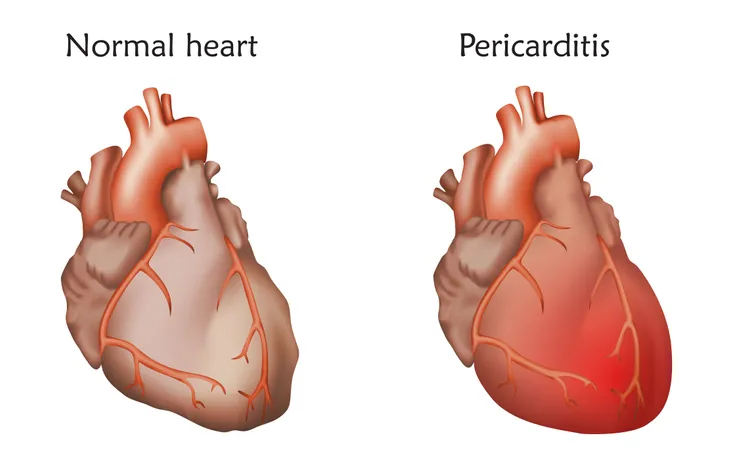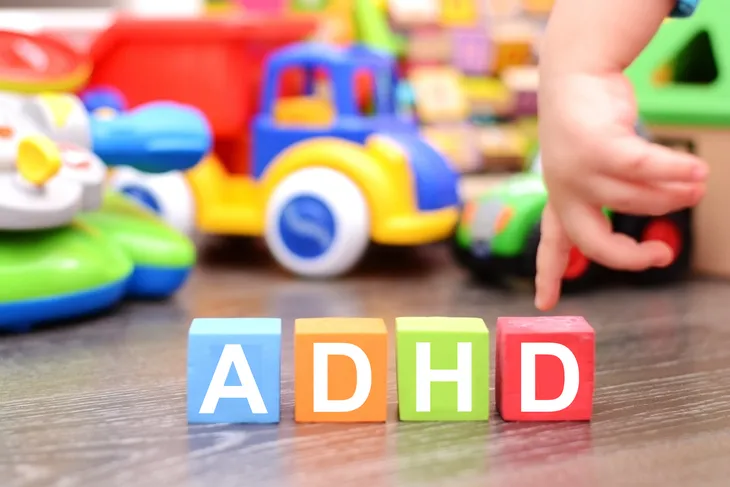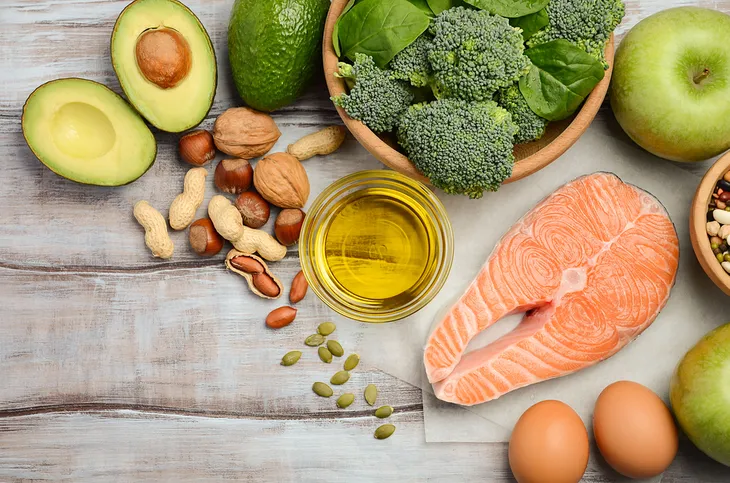Unless you’ve been living in a bubble, you have probably heard about omega-3 fatty acids at some point – and the fact that they are supposedly good for you. However, what exactly are omega-3s, and how exactly are they a health benefit?
Research has shown that omega-3s can benefit both your body and mind. What’s better is that they are found naturally in several foods, while also being available as supplements. Read on to learn more about why you should consider adding more omega-3 to your daily routine…
What Are Omega-3s?
Put simply, omega-3s are fatty acids that you derive from your diet, explains Healthline. The source notes there are three important types of omega-3s: alpha-linolenic acid mostly found in plants, as well as alpha-linolenic acid and eicosapentaenoic acid that can both be primarily found in algae and animal products.
Alpha-linolenic acid (ALA) is the most common of the trio and is primarily used by your body for energy. These “essential” fatty acids play a number of important roles in your body, but your body cannot produce them on its own, explains the source.
Lowering Risk of Heart Disease
WebMD explains that omega-3 fish oils have become more popular in the past decade for those who have heart disease. That’s because fish oil has docosahexaenoic acid (DHA) and eicosapentaenoic acid, which are “essential nutrients that are important in preventing and managing heart disease,” notes the source.
How does it do this? WebMD notes that findings show omega-3s can lower blood pressure, reduce triglycerides, help avoid abnormal heart rhythms, and reduce the chance of heart attacks and strokes. It might also help lower the risk of “sudden cardiac death” related to heart disease, the source adds.
Fighting Inflammation
Healthline explains that omega-3s might be helpful in reducing inflammation, whether it’s from an infection or due to a chronic condition. Prolonged inflammation can lead to both heart disease and cancer, explains the source.
It notes that these fatty acids can help by reducing substances that are linked to inflammation, namely inflammatory eicosanoids and cytokines. It also cites studies that “consistently” suggest a higher intake of omega-3s leads to lowered inflammation in the body.
Protecting Eye Health
All About Vision explains that a lack of omega-3s in your diet could lead to eye health issues. It also notes that studies have suggested omega-3s “offer the most benefit for your eyes” as opposed to omega-6 acids that could have their own benefits if consumed in moderation. Of course, there are other vitamins and nutrients such as beta-carotene from foods that also benefit the eyes.
In particular, the source says that omega-3 fatty acid intake could help protect against adult eye problems such as macular degeneration, glaucoma, and “dry eye syndrome.” Of the three types of acids, it says, “our eyes may benefit most from a diet high in fish-friendly EPA and DHA – especially DHA.”
Helping Infant Development
Medical News Today says that pregnant people might want to consider upping their omega-3 intake, as it could be beneficial for the fetus – “especially in the brain and eyes.” But while it notes experts say you should eat more “oily fish” during pregnancy, it warns against consuming types of fish connected to high levels of mercury such as shark and king mackerel. Try trout and salmon instead.
An article from the National Institutes of Health says consuming 8 to 12-ounces of low-mercury fish could be beneficial for a baby’s health during pregnancy and breastfeeding (breast milk contains DHA), but it’s unclear if supplements have the same positive impacts, it adds. However, it notes studies suggest it may increase birth weight and time in the womb – which both could be beneficial, it notes.
Improving Mental Health in Adults and Children
Healthline explains that while depression and anxiety are both rampant in the world, omega-3s might be a way to help manage these mental disorders. In fact, the source points to a study that suggests EPA (apparently the most effective of the fatty acids for depression) can be as beneficial as antidepressant medication.
Meanwhile, the source also explains that omega-3s might be helpful in reducing ADHD symptoms – specifically in children. It cites studies that indicate ADHD-affected children have lower omega-3 levels than their peers without the mental condition. The source also says there are other studies to suggest a direct benefit of reducing ADHD symptoms (such as hyperactivity and aggression) from omega-3 intake.
Reduce Asthma in Children and Young Adults
Asthma is a growing concern and rates have increased in the U.S. over the last few decades. This chronic lung disease can cause serious symptoms like coughing, wheezing, and shortness of breath. But Healthline explains omega-3s may be able to help.
The source says “Several studies associate omega-3 consumption with a lower risk of asthma in children and young adults.”
Aiding With Neurological Disorders
Medical News Today says some research suggests EPA and DHA fatty acids could help with “neuropsychiatric” conditions including Parkinson’s disease that’s marked by tremors and other symptoms.
Meanwhile, patients with epilepsy may benefit from omega-3 supplements in their diet, noting some studies suggest it can reduce the number of seizures associated with the neurological condition (although one review did not).
It also adds there could be some benefit of consuming omega-3s for other diseases affecting the brain such as multiple sclerosis (MS) – but again it notes that at least one study has shown it does not reduce the disease’s activity. While the findings are inconclusive, it may be a potential benefit worth discussing with your doctor.
Guarding Against Prostate Cancer
The American Cancer Society says that prostate cancer will affect about 1 in 8 men during their lifetime. Meanwhile, Medical News Today says that research has pointed to preventative properties of omega-3 against this fatal disease.
But the findings come with a caveat, adds the source. While the source cites research that may suggest otherwise, it notes that some other studies “found no evidence to suggest that omega-3 either increases or reduces the risk of various types of cancer” – perhaps even the opposite.
Treating Obesity in Children and Adults
Various sources tout the benefits of omega-3s to control obesity, a condition that affects more than 36-percent of adults in the U.S. However, it’s not clear how. An article from ScienceDirect suggests omega-3s have anti-inflammatory properties, and “may play a key role in obesity treatment.”
However, a systemic review of omega-3 impact on markers such as lipids, inflammation, and glucose metabolism in overweight/obese children and adults produced “conflicting” results. The source says the existing research is “promising,” but adds that more studies are needed to clearly demonstrate any benefits.
Where Can I Find Omega-3s?
The National Institutes of Health (NIH) explains that omega-3s can be found naturally in several foods, while some fortified foods also contain them. Among the list is fish (especially “cold-water fatty fish” including salmon, tuna, herring, and sardines).
Meanwhile, you can also find plant-based sources such as nuts/seeds (the source mentions flaxseed, chia seeds, and walnuts) as well as plant oils including flaxseed oil, soybean oil, and canola oil.
Further, other products may be fortified with omega-3s, such as eggs, milk, yogurt, and even some juices and baby formulas.
How Much Do I Need?
So, how much do you need to consume to reap their benefits? Healthline suggests eating fatty fish at least twice per week. However, if you don’t eat fatty fish often, you can consider supplements.
WebMD says you should keep fish oil supplements to 3-grams a day unless you discuss increasing it with your doctor. Healthline also notes, “it’s important to make sure your supplement contains enough eicosapentaenoic acid (EPA) and docosahexaenoic acid (DHA). ” This is because these are the most useful types of omega-3s which are found in fatty fish and algae.
Keep in mind, before taking any supplements, it’s important that you consult your doctor first to ensure they are right (and safe) for you.















